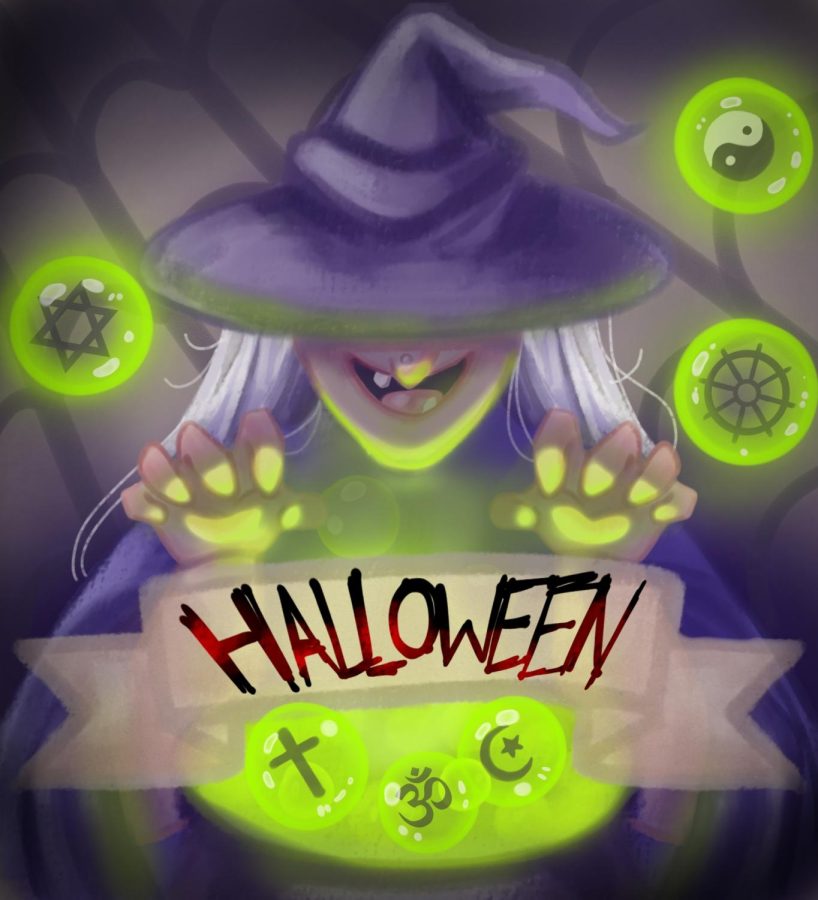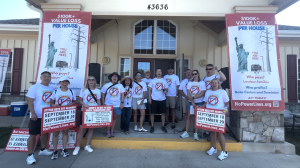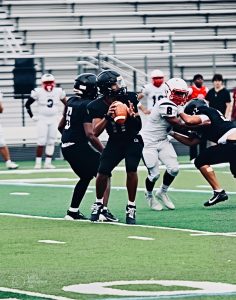Is Halloween Anti-Religion? A Look into the Holiday’s History
As Halloween creeps up, the religious views on the holiday start to rise. Some people believe that Halloween shouldn’t be celebrated because it recognizes evil, but many feel that the holiday is harmless and has evolved since it was first observed.
There are many different religious perspectives on Halloween. The holiday is stirring up the cauldron on whether it should be celebrated amongst religions.
October 31, 2022
As October comes to a close, people start to get into the spooky spirit at Rock Ridge. They share the different ways they celebrate the holiday. “I decorate the house and dress up as well as go trick or treating with all my friends, then stay up all night watching Halloween movies,” sophomore Avery McCraken said.
“I celebrate Halloween occasionally,” sophomore Pragati Satish said “It depends on how I’m feeling. If I feel like I should be festive for once in my life, then yes. If not, then no. It’s probably based on if I have the energy to decorate and if my friends and I are excited about the fact that it’s Halloween.”
“I put on my costume and that normally ranges from ninjas to fairies to whoever I want to be that day, and then I wait for my friends,” sophomore Nitya Matcha said. “They arrive, and then we just start going around my neighborhood, and then we get candy!” Matcha and her friends then come home at around midnight and stay awake the rest of the night. After Matcha gets all her candy together, she takes a long hot shower because “it’s freezing” outside. Finally, she lies on her bed admiring the stash of candy she’d managed to collect that day.
Although most Halloween routines today are similar to Matcha’s, the history of the rituals of the holiday trace back to almost 2,000 years ago. Halloween, also known as All Hallow’s Eve, is a Christian holiday that is celebrated each year on Oct. 31. The holiday originated from an ancient Celtic festival, Samhain, which was celebrated thousands of years ago. The festival celebrated the end of the harvest season and the beginning of winter. During Samhain, the Celtic people would wear costumes to repel ghosts. They would also light bonfires. Deuteronomy 18:10-12, a Bible verse, condemns Celtic practices, but doesn’t specifically warn against observing Halloween. “There shall not be found among you anyone that maketh his son or his daughter to pass through the fire, or that useth divination, or an observer of times, or an enchanter, or a witch,” the verse reads. Over time, Halloween progressed into a holiday filled with activities such as trick-or-treating and visiting haunted houses.
During the early Church days, Allhallowtide (a Christian season) consisted of three consecutive holidays: All Hallows’ Eve on Oct. 31, All Hallows’ Day, also known as All Saints Day, on Nov. 1, and All Souls’ Day on Nov. 2. These days were a time to remember the deceased. On these special days, Christians would gather together and have feasts and pray for lost and perished souls that hadn’t reached Heaven yet.
Some believe that Halloween is a holiday that celebrates evil. They presume that when participating in the holiday, they’re worshiping the devil. “I’ve heard many stories about ghosts or demons dressing up on Halloween, but I don’t believe that,” McCracken said. “ I believe there is energy in the air on Halloween — but it might just be Halloween spirit.”
Matcha believes that Halloween is a holiday for entertainment and excitement rather than to celebrate the wicked. “I think Halloween should be celebrated regardless of what age or ethnicity you are,” Matcha said. “A lot of people think that Halloween isn’t ‘allowed’ by certain religions, but it’s more of a day to dress up.”
The choice to celebrate or not celebrate is an immense debate in religious communities, especially as children see their peers celebrating it and don’t want to be left out. Some parents worry that instead of making Halloween about dressing up and going trick-or-treating, now that children have access to more inappropriate games, shows, and social media. They don’t feel as comfortable with letting their children go out late at night on Halloween, as stated by Helen Neale, a parent of two and a founder and writer for a blog made for parents and children.
Some religious people are open to the idea of Halloween; others aren’t fond of it. According to the Jewish Virtual Library, “while many American non-Orthodox Jews do tend to celebrate the non-religious traditions of Halloween, Halakha prohibits Jewish participation in the holiday. Halloween includes both Pagan and Christian origins, meaning it’s considered a Gentile festival, which is against the Jewish law to celebrate it.” (Halakha is a religious piece of text consisting of laws and rules in Judaism).
Many people have different propositions of the holiday within their religions. For example, in Islam, some believe that Halloween is one of the worst holidays that can be celebrated, due to its history. In particular, a powerful belief that says that on the night before the Celtic new year, the border between the two worlds of the living and the dead was obscured. It is considered to be prohibited to engage in such a celebration due to beliefs like these.
Other people within the religion believe otherwise. “Most religious scholars agree that Halloween is haram in Islam from a religious standpoint,” Adam, who is a writer for a blog on a guide to Islamic living, said. “However, the minority state that Halloween that is celebrated today is very different from before. These days, people only dress up and go trick-or-treating; Halloween isn’t associated with religion, and it’s only all for fun.” “Haram” is a term associated with Islam; it means forbidden.
The different world religions play a significant role in what Halloween has come to be. The growth and changes of Halloween throughout the years have allowed many people from different religions to celebrate the holiday regardless of religion, ethnicity, and culture.





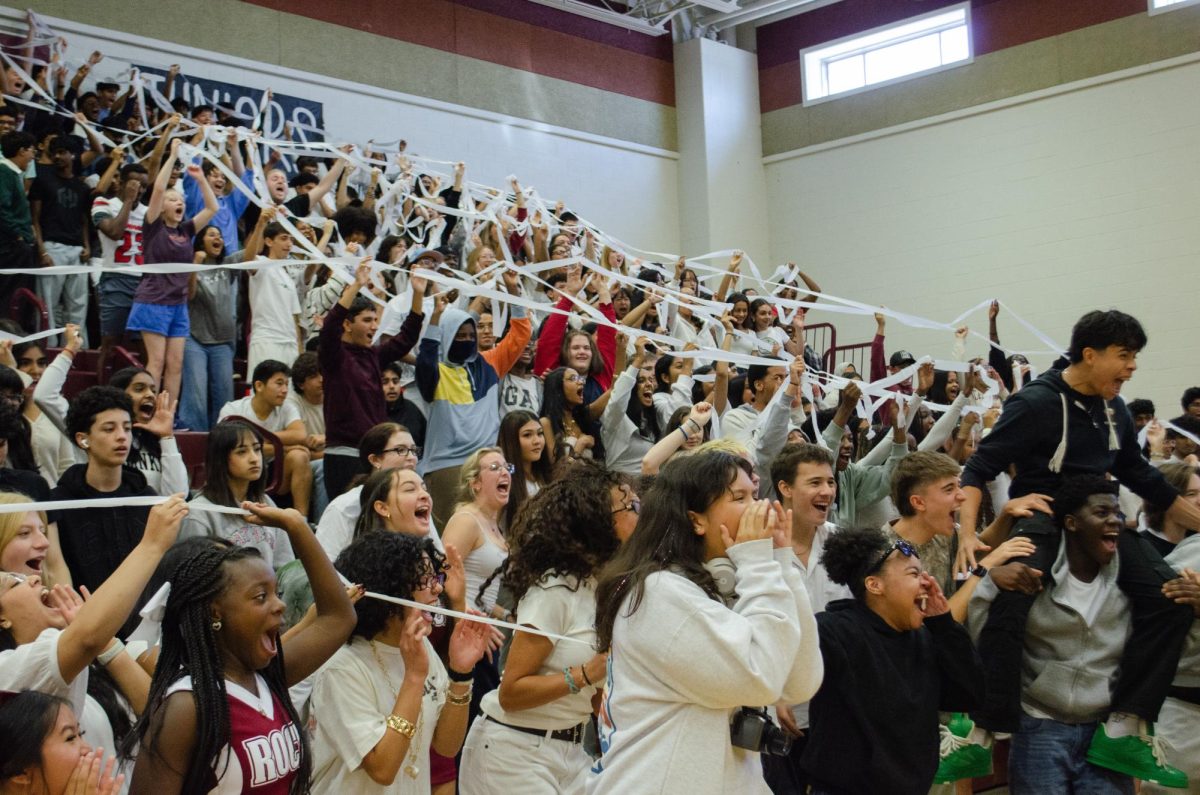










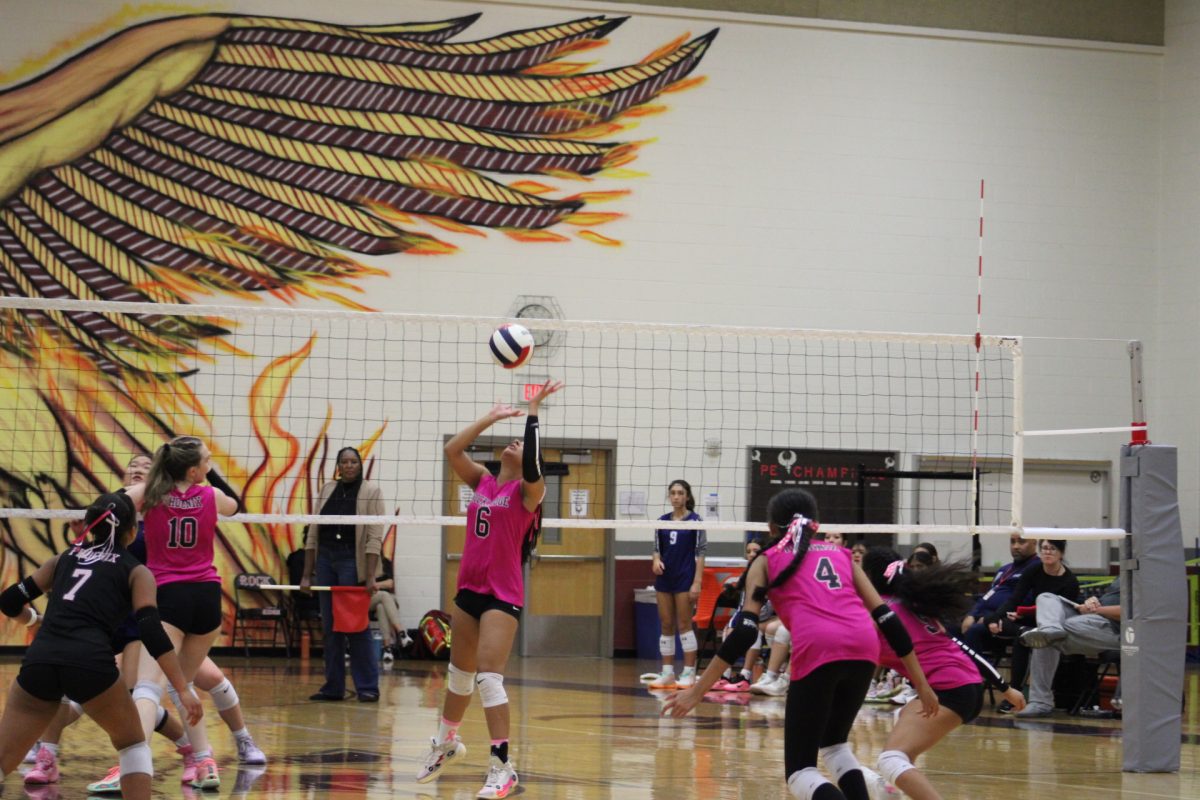



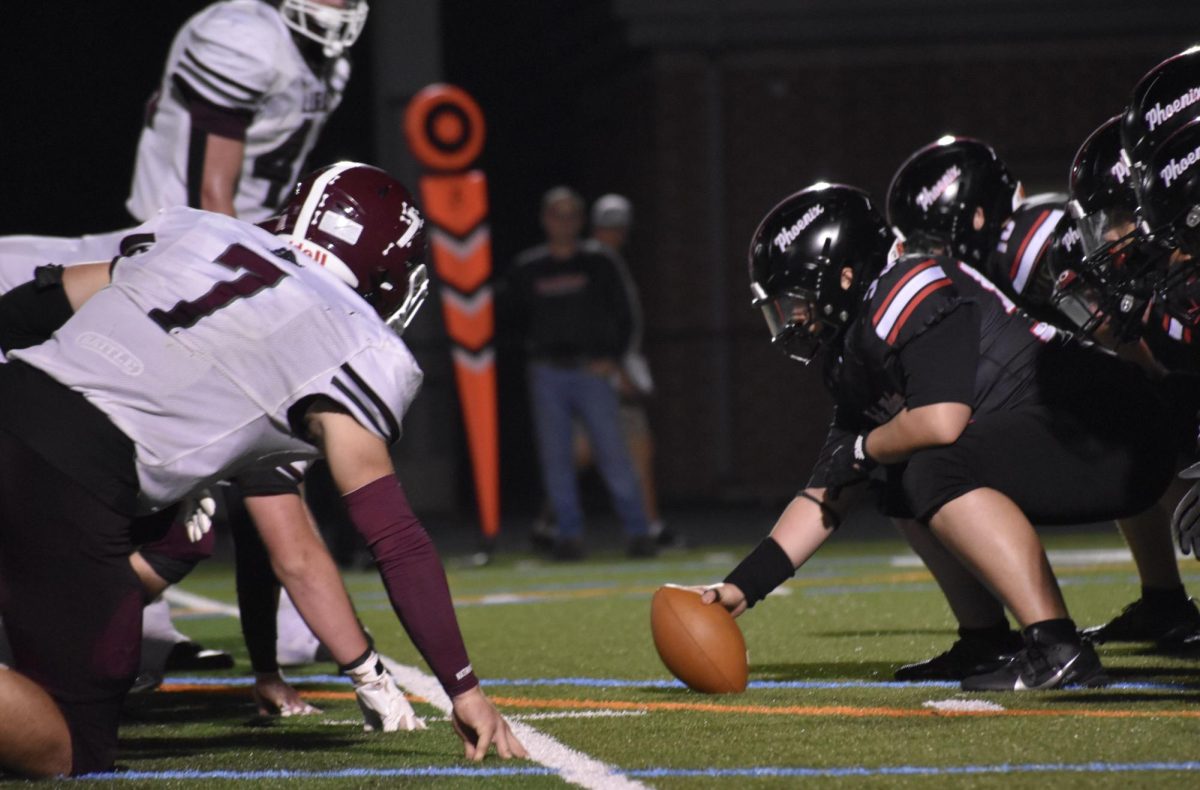





![The Phoenix varsity volleyball team lines up for the national anthem. “We were more communicative [with each other] during this game, and I feel like we kept our energy up, especially after the first set,” senior Jessica Valdov said.](https://theblazerrhs.com/wp-content/uploads/2024/10/DSC_0202-1200x800.jpg)










![Junior Alex Alkhal pitches the ball. “[I] just let it go and keep practicing so we can focus on our goal for the next game to get better as a team,” Alkhal said.](https://theblazerrhs.com/wp-content/uploads/2025/05/DSC_0013-1-1200x929.jpg)


















